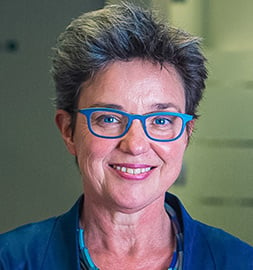Coffee linked to lower recurrence of bowel cancer

People who have had bowel cancer who drink more than 4 cups of coffee per day have a lower risk of the cancer recurring than those who have 2 or fewer cups.
They also have a lower risk of death following their diagnosis, according to new research recently published in the International Journal of Cancer.
The study found that participants who drank more than 4 cups of coffee had a 32% lower risk of cancer recurrence than participants who drank less than 2 cups per day in terms of relative risk. In addition, the risk of dying was lower among coffee drinkers, and 3–5 cups of coffee per day seem sufficient to improve survival.
The observational study, funded by World Cancer Research Fund*, analysed a cohort of 1,700 people in the Netherlands of median age 66, who were diagnosed and treated for colorectal cancer, commonly known as bowel cancer, since August 2010.
Of 540 patients who reported drinking more than 4 cups of coffee per day, 73 (13.5%) experienced cancer recurrence. This is significantly lower than those who drank fewer than 2 cups per day, (89 out of 499 or 17.8%). In addition, relatively fewer of those who reported drinking more coffee have died since their diagnosis, with the lowest all-cause mortality at around 4 cups per day.
Previous evidence from World Cancer Research Fund shows that coffee can help protect against several cancers including liver and womb cancers. This is despite public perception that coffee may not be healthy. For example, polling conducted by YouGov on behalf of World Cancer Research Fund has shown that 12% of all UK adults mistakenly believe that drinking coffee increases cancer risk**.
People who have had a cancer diagnosis or treatment are advised to follow World Cancer Research Fund’s evidence-based Cancer Prevention Recommendations, the conclusions of an independent panel of experts.
Intriguing results
People diagnosed with bowel cancer are living longer than before. Unfortunately, in about 20% of those treated the disease returns and can be fatal. So, it is intriguing that this study suggests drinking 3–4 cups of coffee may reduce the recurrence of bowel cancer. We are now doing further research to confirm the effect we are seeing is causative rather than simply an association. We are hopeful, however, that the finding is real because it appears to be dose dependent – the more coffee drunk, the greater the effect. This has been previously supported by other, though smaller, studies.
Strong association
Coffee consumption is linked to a lower bowel cancer risk in the literature. We wondered whether coffee could also reduce the rate of bowel cancer coming back in those who have already had a diagnosis. We found a strong association between drinking coffee and a reduced recurrence and mortality in people with a bowel cancer diagnosis.
More research needed
More research is needed to understand the active ingredients in coffee and how they might influence cancer development and progression. For example, certain compounds in coffee could reduce oxidative stress in the body, influence the gut microbiome, improve metabolic health, or help protect liver health to prevent cancer spreading. With further support from World Cancer Research Fund, this research team hopes to get a much clearer picture and obtain the necessary evidence to make recommendations on coffee drinking to health providers, patients and the public.
Shaping the future
These are promising findings but more evidence is needed before we would recommend bowel cancer patients change their diet to include more cups of coffee, but this study could shape future clinical studies and inform dietary guidelines.
Notes to Editors
About the research
This study used data from a prospective cohort of colorectal cancer patients, the “Colorectal cancer: Longitudinal, Observational study on Nutritional and lifestyle factors that influence colorectal tumor recurrence, survival and quality of life” (COLON) study.
The study found that of 540 patients who reported drinking more than 4 cups of coffee per day, 73 (13.5%) experienced cancer recurrence. This is lower than for those who drank 2–4 cups per day (93 out of 664 or 14%) and significantly lower than those who drank less than 2 cups per day, (89 out of 499 or 17.8%).
In addition, relatively fewer of those who reported drinking more coffee have died since their diagnosis, with the lowest all-cause mortality at around 4 cups per day. Of the 1,700 people, approximately 300 (18%) have died of all causes.
*The study was funded by Wereld Kanker Onderzoek Fonds in the Netherlands as part of World Cancer Research Fund International’s grant programme.
The study did not assess different types of coffee; in their subsequent analysis of metabolomics, the authors intend having more detailed insights into coffee type, the metabolites responsible, and potential mechanisms.
The study focuses on coffee consumption and does not include tea consumption. The association the researchers observed remained the same after accounting for tea consumption in the data analysis.
About bowel cancer
Bowel cancer is the 3rd most common cancer worldwide. It is the 2nd most common cancer in women, after breast cancer. It is the fourth most common cancer in the UK, with around 45,000 people diagnosed every year.
About World Cancer Research Fund
World Cancer Research Fund examines how diet, nutrition, body weight and physical activity affect your risk of developing and surviving cancer. As part of an international network of charities, we have been funding life-saving research, influencing global public health policy, and educating the public since 1982.
While society continues searching for a cure, our prevention and survival work is helping people live longer, happier, healthier lives – free from the devastating effects of cancer.
Preventing Cancer. Saving Lives
About YouGov Poll
**All figures, unless otherwise stated, are from YouGov Plc. Total sample size was 2092 GB adults. Fieldwork was undertaken between 28–29 June 2023. The survey was carried out online. The figures have been weighted and are representative of all GB adults (aged 18+).
